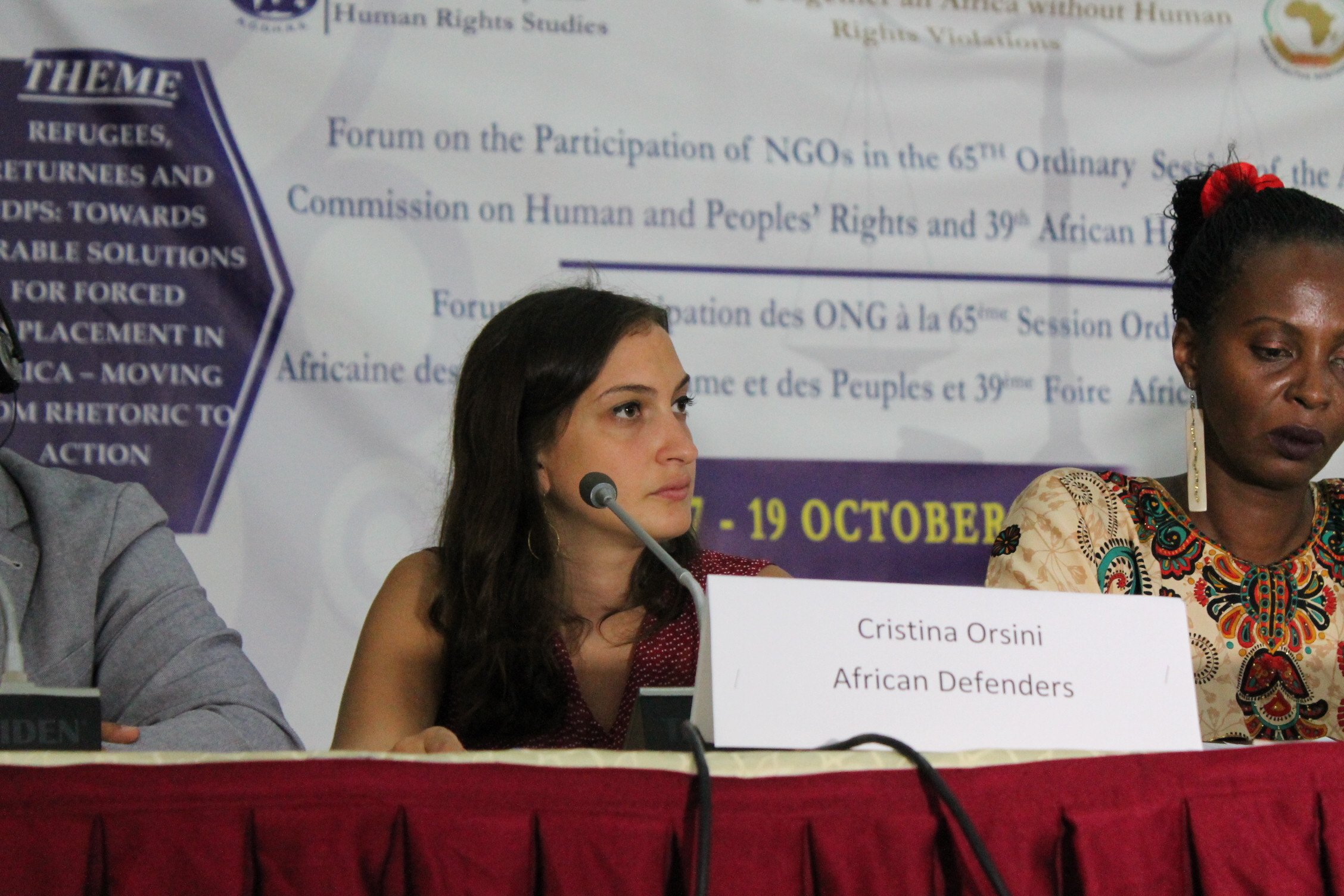On 19 October, a panel on the challenges faced by defenders in exile was organised during the NGO Forum. The panel aimed at discussing the causes that push human rights defenders to go into exile, the challenges they faced in their host countries in terms of security and human rights work, and the resilience strategies they have designed to continue their activism. Particular attention was given to potential recommendations for States, international mechanisms, and protection stakeholders.
In her opening remarks, moderator Carine Kaneza Nnantulya, Africa advocacy director at Human Rights Watch, highlighted that in addition to the difficulties faced by any displaced population, defenders in exile face unique challenges, such as ensuring their security and continued activism. These challenges prevent them from doing their human rights work, fulfilling the wishes of those who try to silence them. Analysing their challenges and the resilience strategies is thus crucial to shape interventions tailored to their needs to empower them to continue to promote human rights despite their situation of exile.
‘Defenders are in a critical situation in Egypt. State agents also intimidate, harass and threaten those who are abroad, and attack their family members who remained in Egypt,’ added Ahmed Mefreh from the Committee for Justice.
Cristina Orsini, AfricanDefenders’ Hub Cities Development Associate, explained the challenges faced by human rights defenders in exile and how her organisation is helping displaced defenders through the Ubuntu Hub Cities initiative. ‘The impact that exile can have on defenders is often overlooked. Their capability to pursue their work is mainly relying on their safety but not only. How can you continue to work when you are unable to see your children or even go back to your country to bury your closed ones? The Ubuntu Hub Cities initiative is a relocation programme for defenders in danger based on the concept that defenders from Africa can also be safe in Africa,’ said Orsini.
Imam Baba Leigh from the National Human Rights Commission in the Gambia shared his experience of how fighting abuses against women and girls and defending human rights led him into exile in the past. ‘I kept hoping that the fight I was invested in would lead me back to my country, the Gambia, so that I could continue to work towards a better protection of human rights there,’ he added.
‘Defending human rights is not a crime, yet State practices contradict this fact, pushing a growing number of defenders in Africa into exile,’ concluded Rémy Ngoy Lumbu, the African Commission’s Special Rapporteur on human rights defenders.
Contact: Adélaïde Etong Kame, Africa Advocacy Consultant, [email protected]
Photo: David Meffe, DefendDefenders




